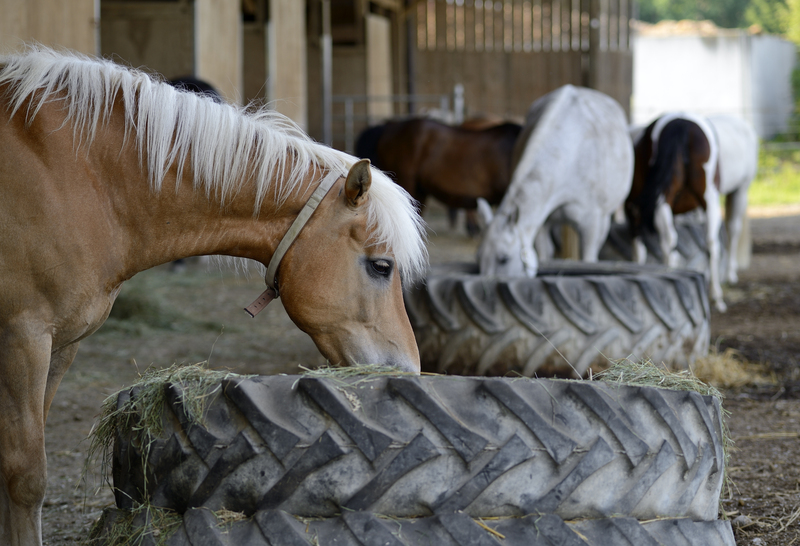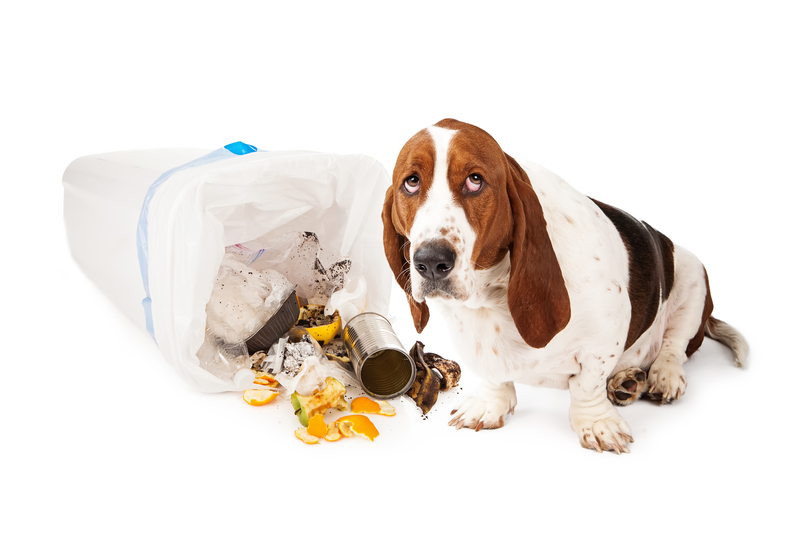Eco-Friendly Habits for Reducing Plastic
Posted on 30/06/2025
Eco-Friendly Habits for Reducing Plastic: A Comprehensive Guide
In recent years, plastic pollution has attracted global attention as one of the most pressing environmental issues. Excessive plastic usage not only contaminates our oceans, rivers, and wildlife but also threatens human health. Fortunately, there are multiple eco-friendly habits you can adopt to significantly reduce plastic consumption and move towards a more sustainable lifestyle. This informative article will guide you through effective, practical, and sustainable solutions to plastic waste, offering plenty of tips for eco-conscious individuals and families.
Understanding the Impact of Plastic Pollution
Plastics have become an integral part of our daily lives, from packaging and food containers to clothing and electronics. However, their convenience comes at a cost. Did you know that over 8 million tons of plastic end up in our oceans each year, endangering marine life and contaminating the food chain? Most plastics are not biodegradable and can persist in our environment for centuries.
- Plastic waste threatens over 800 marine species worldwide.
- Microplastics have been found in drinking water and even in the food we eat.
- Plastic pollution contributes to greenhouse gas emissions during production and decomposition.

The Importance of Adopting Eco-Friendly Plastic Habits
Reducing your plastic footprint is crucial for protecting environmental and personal health. By adopting eco-friendly habits to reduce plastic, you not only preserve nature but also inspire positive change in your community. Plastics never truly disappear; instead, they break down into smaller pieces that persist in the ecosystem. Making conscious choices today will ensure a cleaner, healthier planet for future generations.
Effective Eco-Friendly Habits for Reducing Plastic Usage
1. Embrace Reusable Bags and Containers
One of the simplest and most effective eco-friendly changes you can make is to switch from single-use plastic bags and containers to durable, reusable alternatives.
- Carry cloth or canvas shopping bags instead of accepting plastic at checkout.
- Use glass, stainless steel, or bamboo containers for packing lunches, snacks, or leftovers.
- Avoid pre-packaged produce by opting for loose fruits and vegetables and storing them in reusable mesh bags.
*These small shifts not only cut down on plastic bag waste but also encourage a wider culture of sustainability.*
2. Choose Eco-Friendly Bottles and Cups
Disposable water bottles and coffee cups contribute massively to our plastic waste problem. Commit to using a refillable water bottle or travel mug every day.
- Opt for bottles made of stainless steel, glass, or BPA-free plastics.
- Keep your travel mug handy for coffee shop stops to avoid single-use lids and cups.
- Encourage friends and colleagues to do the same to amplify your impact.
3. Say 'No' to Single-Use Plastics
It's startling how much single-use plastic we encounter daily--straws, utensils, plates, and even stir sticks. Learning to refuse unnecessary plastic is a powerful eco-friendly habit for reducing your plastic consumption.
- Politely decline plastic straws and cutlery at restaurants. Carry your own reusable alternatives when eating out.
- Choose products with minimal or no plastic packaging whenever possible.
- Support businesses that use biodegradable or compostable packaging.
Every refusal adds up, and your choices send a message to retailers and manufacturers about consumer demand for sustainable options.
4. Buy in Bulk and Focus on Minimal Packaging
Grocery stores are filled with plastic packaging, but you can drastically minimize plastic waste by buying in bulk and bringing your own containers.
- Visit local bulk food stores or farmers' markets to pick up grains, nuts, and snacks.
- Use paper bags or glass jars to store your purchases.
- Select products with recyclable, compostable, or minimal packaging.
By avoiding single-use plastic wrappers, you not only save money but also encourage a circular economy based on reuse and recycling.
5. Rethink Personal Care Products
Many personal care and cleaning items are packaged in hard-to-recycle plastic. Switch to eco-friendly alternatives to reduce your plastic impact.
- Choose bars of soap instead of bottled body wash and shampoo.
- Try bamboo toothbrushes and reusable cotton rounds for skincare routines.
- Make your own cleaning solutions stored in glass spray bottles.
6. Participate in Community Clean-Ups and Advocacy
Engaging with your local community is an excellent way to support larger efforts in reducing plastic waste and raising awareness about eco-friendly habits.
- Join or organize beach or park clean-ups to remove plastic litter from public spaces.
- Educate friends and neighbors about the dangers of plastic waste and the importance of adopting eco-friendly habits.
- Support legislation and companies committed to reducing plastic pollution.
Innovative Alternatives to Plastic Products
Thanks to growing environmental awareness, there's a surge in eco-friendly alternatives to replace everyday plastic products. Choosing these alternatives not only supports sustainable markets but also significantly reduces your plastic waste.
Eco Vehicles and Commuting
- Use a reusable shopping bag made from recycled or natural fibers.
- Switch to beeswax wraps or silicone lids for food storage rather than plastic cling wrap.
- Purchase clothing made from organic cotton, hemp, or bamboo to limit microplastic shedding during washes.
- Choose combs, brushes, and razors made with bamboo or stainless steel handles rather than plastic ones.
- Opt for biodegradable garbage bags and pet waste bags.
Plastic-Free Gift Ideas
- Wrap gifts in recycled paper, reusable fabric (like furoshiki), or reusable containers.
- Purchase experiences or digital gifts to avoid unnecessary packaging.
- Buy locally crafted, plastic-free gifts that support green businesses.
How to Build Sustainable Eco-Friendly Habits in Daily Life
Creating permanent eco-friendly habits for reducing plastic doesn't happen overnight. The key is to start with small changes, be consistent, and gradually build towards a sustainable lifestyle.
Tips for Maintaining Long-Term Habit Change
- Set realistic goals: Start with one or two habits per week and build from there.
- Track your progress: Note the plastic items you replace and celebrate milestones.
- Involve friends and family to keep each other motivated and hold each other accountable.
- Educate yourself about the environmental impact of plastic through documentaries, books, and reputable websites.
Encouraging Children to Follow Eco-Friendly Habits
- Teach kids about recycling, composting, and the importance of reducing waste.
- Engage children in fun DIY projects, like making reusable bags or crafts from recycled materials.
- Reward children for eco-friendly actions to foster lifelong responsible habits.
The Role of Businesses and Governments in Reducing Plastic
Lasting change cannot come solely from individual actions; systemic support is crucial. Businesses and governments have a significant role to play in the transition to an eco-friendly, low-plastic society.
Corporate Responsibility
- Companies can design products and packaging for sustainability and recyclability.
- Brands can take back used packaging and invest in circular production systems.
- Retailers can encourage reusable options by offering discounts or rewards for eco-friendly behavior.
Policy and Regulation
- Governments can implement bans and taxes on single-use plastics.
- Support for research and development into sustainable materials.
- Educational campaigns to inform the public about waste reduction strategies.

Frequently Asked Questions about Reducing Plastic Waste
Which plastics are the hardest to recycle?
Plastics labeled with codes #3 (PVC), #6 (polystyrene), and #7 (miscellaneous plastics) are particularly challenging to recycle. Stick to plastics labeled #1 (PET) and #2 (HDPE), but always prioritize reduction and reuse.
Are degradable plastics a good alternative?
While degradable plastics are often marketed as eco-friendly, they sometimes only break down into microplastics rather than fully biodegrading. Look for products certified as compostable instead.
How can I reduce plastic in the kitchen?
Use beeswax wraps, glass storage containers, cloth produce bags, and avoid pre-packaged goods wherever possible. Make fresh, homemade meals to lower your reliance on packaged foods.
Conclusion: Building a Plastic-Free Future
Adopting eco-friendly habits for reducing plastic is essential in safeguarding our environment, health, and future generations. By embracing reusable alternatives, refusing single-use plastics, supporting sustainable businesses, and advocating for policy change, we can all play a vital role in curbing plastic pollution. Every small step you take--no matter how insignificant it may seem--contributes to a cumulative positive impact. Together, let's build a brighter, cleaner, and more sustainable world by making conscious choices to reduce our plastic footprint.
Remember: Every piece of plastic not used is one less pollutant in our oceans, landfills, and ecosystems. Start today--your planet will thank you!

 020 3409 1874
020 3409 1874 020 3409 1874
020 3409 1874




 House clearance
House clearance Rubbish collection
Rubbish collection




